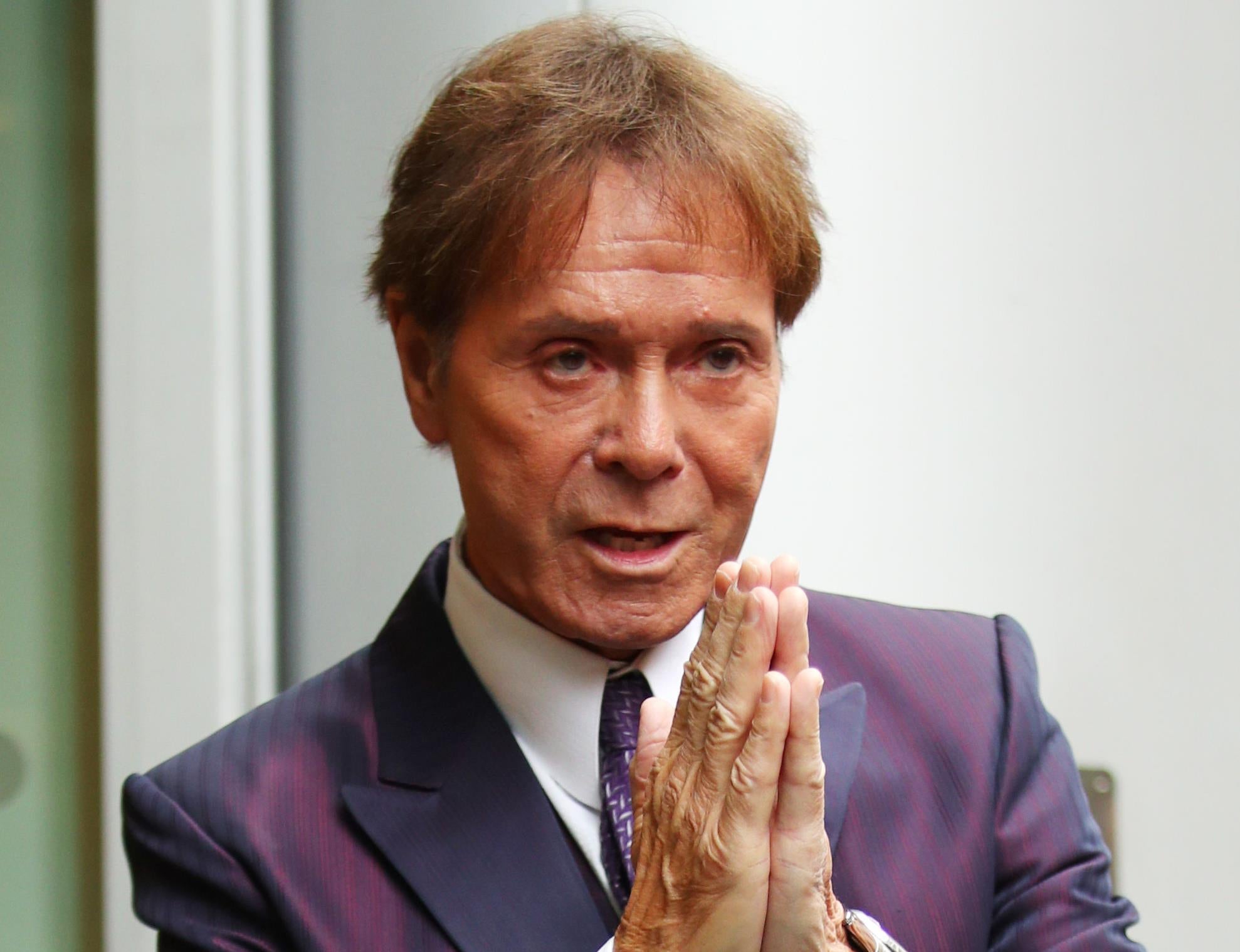
Sir Cliff Richard has told a High Court judge he felt “forever tainted” following BBC coverage of a police raid on his home.
The 77-year-old singer is suing the BBC over its coverage of the search, which was staged after a sex assault allegation.
BBC bosses are defending the claim.
The High Court trial, being conducted by Mr Justice Mann, started yesterday – and today Sir Cliff started giving evidence.
He has made a written witness statement and answered lawyers’ questions in court. The singer told of the impact the broadcast had on him.
“It was shocking and upsetting,” he said in his witness statement. “My health suffered, both mentally and physically.”
He added: “At one point … I actually thought was going to have a heart attack or stroke.”
Sir Cliff said he was conscious that people around the world might think he was a “serious criminal”.
“I felt as though everything I had worked for during my life – trying to live as honestly and honourably as I could – was being torn apart,” he said.
“I felt forever tainted. I still do.”
Sir Cliff told Mr Justice Mann about seeing footage of the police search on his home for the first time.
The singer’s voice cracked as he recalled seeing a news item while at a hotel in Portugal after returning from a winery.
He said the memory was “engraved” and he witnessed footage from cameras which could see “right into” his apartment and had recorded officers searching through his belongings.
He added: “It wasn’t a very pleasant feeling and by that time I had heard of the allegation and seeing it made me feel even worse.”
Sir Cliff said he did not view any clips of the BBC’s broadcasts as they were played to the court yesterday.
When asked how he felt during the police investigation, Sir Cliff replied: “I have found it very disturbing because it is obvious that for moments, if not days, I was not seen as a human being.
“Everything I had ever lived for seemed to have come to nothing.”
Justin Roshbrooke QC, who leads Sir Cliff’s legal team, has told Mr Justice Mann that the BBC coverage of the search at the singer’s apartment in Sunningdale, Berkshire, in August 2014 was a “very serious invasion” of privacy.
He added that Sir Cliff should get compensation at the “very top end of the scale”.
The BBC says its coverage of the police raid was accurate and in good faith.
Lawyers for the BBC say the raid was a “matter of legitimate public interest”, as was its coverage, and that the reporting contributed to public debate.
The trial is due to last 10 days.
Lawyers have told Mr Justice Mann how in late 2013, a man made an allegation to police saying he had been sexually assaulted by Sir Cliff during an event featuring evangelist Billy Graham at Sheffield United’s Bramall Lane football stadium, when a child in 1985.
Metropolitan Police officers passed the allegation to South Yorkshire Police in July 2014.
Sir Cliff denied the allegation and in June 2016 prosecutors announced that he would face no charges.
A BBC spokesman has said the broadcaster had reported Sir Cliff’s “full denial of the allegations at every stage”.
Jason Beer QC, representing South Yorkshire Police, told the court the force issued a “fulsome and unequivocal apology” to Sir Cliff and paid him £400,000 damages in May last year.
The force is asking Mr Justice Mann to rule that the BBC should contribute to the damages it paid to Sir Cliff.
The force accepted its own “unlawful conduct” but claimed that the BBC was “more responsible” for the damage to Sir Cliff, Mr Beer said.
The force acted unlawfully by confirming Sir Cliff’s identity to a BBC journalist and by discussing the search warrant – but it was the BBC’s broadcasts which were the “primary cause” of the breach of his privacy, he said.
It was the decision to name Sir Cliff, which the force had made clear it would not do, which resulted in the singer suffering “damage”, he added.
Beer told the court that Sir Cliff said his feelings had been “hurt repeatedly” by the behaviour of the BBC.
He added that the singer felt a BBC statement in May last year was “designed to take the sheen off” the settlement and to “undermine the police apology” to him.
Picture: Yui Mok/PA Wire
Email pged@pressgazette.co.uk to point out mistakes, provide story tips or send in a letter for publication on our "Letters Page" blog






